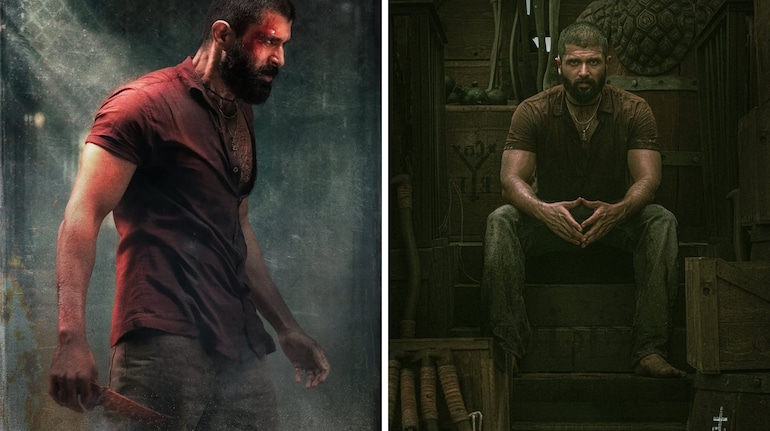The Indian film industry has entered a new era of excitement and debate with the release of Kingdom, the highly anticipated spy action drama directed by Gowtam Tinnanuri and featuring Vijay Deverakonda in a transformative role. Released on July 31, 2025, the film marks the first chapter of a duology that aims to blend gripping espionage with charged family drama. With its ambitious narrative and star-studded cast, Kingdom has become a trending phenomenon across India, sparking conversations about storytelling, representation, and cinematic innovation.
Vijay Deverakonda sheds his usual flamboyant image to portray Constable Surya “Suri,” an undercover cop tasked with dismantling an international crime syndicate. His character embodies complexity, traversing emotional turmoil and gritty resolve. This departure from his previous roles has earned Deverakonda widespread acclaim for his layered performance, in which tenderness and toughness coexist amid a high-stakes plot that tests his loyalty to both family and country.
Gowtam Tinnanuri’s script intricately weaves political intrigue with personal vendetta, centering on Surya’s encounter with his estranged brother Siva, the antagonist who leads the criminal syndicate. The narrative plunges viewers into a tense, emotionally charged atmosphere where borders, both literal and metaphorical, blur. The film’s intense story is supported by Anirudh Ravichander’s pulsating score and striking visuals that heighten the suspense and drama.
The technical finesse of Kingdom is evident in its stunning cinematography, capturing diverse locations from Hyderabad to Sri Lanka, and in its sharp editing that keeps the narrative taut. Alongside Deverakonda, the cast including Satyadev as Siva, Bhagyashri Borse as Dr. Anu, and others, bring depth to their roles, enriching the story with varied emotional hues. Their performances add weight to Kingdom’s multifaceted exploration of trust, betrayal, and redemption.
Since its premiere, Kingdom has invited a spectrum of reactions. The film’s wide release strategy included multiple Indian languages and a significant international premiere, demonstrating confidence in its appeal. Crowd responses range from admiration for its scale and performances to criticism regarding pacing and portrayal of certain cultural elements. Despite the controversies, the film’s box office numbers reinforce its strong presence, making it one of the most talked-about releases of 2025.

Blending Espionage with Emotional Depth: The Story Behind Kingdom
At its heart, Kingdom is a story of complex family dynamics set against the backdrop of an international crime thriller. Surya’s mission to infiltrate a dangerous syndicate in Sri Lanka strips away the black-and-white notions of right and wrong, confronting him with painful truths about his brother Siva and their shared past. This internal conflict is as intense as the external dangers Surya faces, framing the film’s core themes of loyalty, sacrifice, and identity.
The screenplay’s strength lies in balancing high-octane action with moments of introspection, allowing audiences to connect emotionally with the characters. Surya’s conflicted nature challenges viewers to see beyond the typical hero archetype, presenting a protagonist whose journey is as much about self-discovery as it is about justice. His evolving relationship with Dr. Anu introduces another dimension of vulnerability and hope amid chaos.
Gowtam Tinnanuri’s direction excels at marrying these elements, crafting scenes that are visually thrilling yet rooted in character motivations. The familial clash between Surya and Siva elevates the narrative, making it less of a conventional spy story and more of a tragedy-laden saga where personal and political stakes collide. This approach enriches the genre, pushing Indian cinema into new thematic territories.
The emotional core of Kingdom resonates strongly because it ventures beyond the typical boundaries of action thrillers, placing human relationships at the forefront of its discourse. The fraught bond between Surya and Siva is painted with remarkable subtlety—an exploration of fractured siblings struggling under the weight of the past and ideological divides. This nuanced portrayal challenges viewers to rethink notions of villainy, as Siva is not merely a one-dimensional antagonist but a character shaped by experiences and wounds as profound as Surya’s. The film’s willingness to engage with such moral ambiguity elevates it from a standard spy narrative into a complex drama that grapples with themes of forgiveness, identity, and the meaning of justice in a fractured world.
Kingdom’s narrative complexity is supported by its rich character ensemble, which adds multiple layers to the story’s fabric. Figures like Dr. Anu provide emotional balance and a reminder of hope amid chaos, representing the human desire for connection even in desperate times. The film’s treatment of supporting roles avoids mere trope fulfillment; instead, each character—whether an ally, a villain, or a bystander—embodies real motivations and consequences that interplay with the central conflict. This meticulous character development results in a world that feels lived-in and emotionally credible, inviting audiences into a cinematic experience that is immersive and thought-provoking.
Visually, Kingdom is a testament to the power of place and atmosphere in storytelling. The contrasting geographies—from the bustling urbanity of Hyderabad and Visakhapatnam to the verdant yet politically charged landscapes of Sri Lanka—are not just backdrops but active participants in the narrative. The cinematography’s use of color palettes, framing, and lighting subtly reflects the shifting tones of the story, mirroring the internal turmoil of characters and the external threats they face. Such visual craftsmanship not only enhances the film’s aesthetic appeal but also intensifies its emotional and thematic resonance, making every frame contribute to the unfolding drama.
The action sequences serve as thrilling punctuations within Kingdom’s broader thematic ambitions, combining visceral intensity with symbolic meaning. Far from being mere spectacle, the film’s choreographed combats and chase scenes articulate the desperation and stakes of its characters’ journeys. These set pieces are carefully designed to escalate tension and reveal character nuances through physicality and decision-making in high-pressure moments. The seamless integration of action with narrative progression demonstrates Gowtam Tinnanuri’s adeptness at crafting cinema that entertains while remaining narratively purposeful and ethically layered.
Finally, Kingdom enters the Indian cinematic landscape at a pivotal moment, reflecting both the evolving tastes of audiences and the industry’s increasing willingness to innovate within genre spaces. Its ambition to marry commercial thrills with an emotionally complex story positions it as a touchstone for future filmmakers aiming to break from formulaic storytelling. The film’s mixed reception underscores the risks inherent in such endeavors but also highlights the hunger for content that challenges as much as it entertains. As a first installment, Kingdom lays the foundation for a franchise that could reshape expectations and contribute to the maturation of Indian genre cinema on a global stage.
Despite the complexity, some viewers have pointed out moments where the plot’s pacing slows or the screenplay leaves questions unanswered. However, these narrative choices seem intentional, setting up the expansive world for the sequels promised at the film’s conclusion. The unresolved threads and cliffhanger ending have already stirred anticipation for the story’s continuation.
Anirudh Ravichander’s background score weaves through the film’s tonal shifts, accentuating suspense during tense pursuits and deepening emotional beats during quieter scenes. His music cleverly bridges the film’s geographical and cultural contexts, enhancing its immersive storytelling.

Technical Mastery and Cultural Impact: How Kingdom Raises the Bar
Kingdom showcases exceptional craftsmanship in every technical aspect. The dual cinematography by Jomon T. John and Girish Gangadharan captures the contrasting environments—from urban Indian landscapes to the scenic yet turbulent zones of Sri Lanka—with sharp clarity and mood-setting lighting. Their work transforms locations into characters of their own, amplifying the film’s tension and emotional weight.
The editing, by Navin Nooli, sustains a brisk momentum through the action sequences while affording breathing space during character-driven moments. Intricately choreographed fight scenes and espionage sequences are executed with precision, contributing to an immersive viewing experience. Combined with Anirudh’s electrifying score, the film achieves an exciting synergy between sound and visuals.
On the cultural front, Kingdom has initiated important conversations about representation and responsibility in cinema. While the film’s fictional portrayal of communities in Sri Lanka has sparked debate, it also underscores the challenge of creative freedom within politically sensitive frameworks. Many viewers appreciate the film’s disclaimer and fictional status but acknowledge the importance of nuanced storytelling in such contexts.
The supporting cast adds further depth to Kingdom’s narrative. Satyadev’s portrayal of Siva brings a brooding menace balanced with vulnerability, evoking empathy despite his antagonistic role. Bhagyashri Borse’s Dr. Anu serves as more than a love interest; her character symbolizes rationality and emotional support for Surya, grounding the film amid the unfolding storm.
Kingdom’s multi-lingual and pan-Indian release reflects India’s evolving cinematic landscape, where regional stars and stories reach diverse audiences simultaneously. The film’s presence across languages and overseas screenings signifies a confident step towards global market integration for Indian thrillers.
Conclusion
Kingdom emerges as a bold and layered cinematic venture that stretches beyond traditional genre boundaries in Indian cinema. It showcases Vijay Deverakonda’s remarkable shift into a complex, emotionally fraught role and Gowtam Tinnanuri’s ambitious narrative vision. The film’s ability to ignite debate, both for its cinematic merits and controversies, underscores its cultural significance.

By addressing themes of family, duty, and identity, Kingdom provides audiences with more than just an entertaining thriller; it offers a reflection on the human cost behind espionage and crime. While not without flaws, its scale, performances, and technical finesse position it as a landmark release that is poised to influence industry trends.
As Kingdom gears up for its sequel, the groundwork laid by the first film promises an even more expansive story that will further explore its rich characters and high-stakes conflicts. For Indian cinema lovers, Kingdom is not just a movie—it is an event that has sharpened the focus on ambitious storytelling and star power in 2025.
Follow: Kingdom
Also read: Home | Channel 6 Network – Latest News, Breaking Updates: Politics, Business, Tech & More

